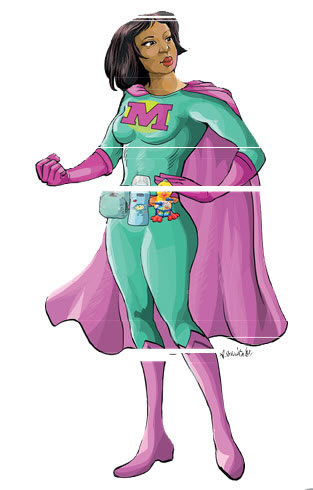This Crippling Lagos PTSD: The Dangers Of Profiling
Once upon a time, taking a walk was my favourite thing to do. It started in secondary school when I’d spend my transport allowance lavishly and so my friends and I would end up having to take long walks home together in groups after school every day. It became therapeutic for me even before having the slightest knowledge of what therapy was. I adopted it and it became more fun when I got a cute Lhasa( a dog breed). We would walk around Lagos together. Those were the good old days.
Things soon became heated on the streets of Lagos (and all across Nigeria) as the Federal Special Anti Robbery Squad unit of the Nigerian Police Force occupied every single neighbourhood in large scary numbers. In a country like ours where cliché utterances such as “The police is your friend” and “Bail is free” are as comical as could be, it was almost like the SARS Officials got a direct order from the top to deal with young Nigerians. The most basic human rights to free movement and privacy got heavily infringed upon as for every route you planned to ply, there was a SARS van waiting to pick you up; almost like a reversed Uber at some point. Of course, there was only enough we could take as youths across the country voiced out in a series of protests that would become powerful under the “end SARS” umbrella hashtag. As expected, the Government responded how they did and claimed to have allegedly taken the cult-like unit off the streets.
SARS’s modus operandi has always been profiling young people and attacking the ones who look like they are well to do. An exploitation tactic that has seen them extort money from hardworking Nigerian youths whose crime was simply existing. Profiling has always been the lazy way of telling people’s stories before bothering to take the comparatively tedious route of getting to know them. It is how we see a complete stranger and immediately come to a conclusion of their profession, sexuality, finances, social status, and livelihood. A practice the majority of us are guilty of but don’t know the damaging implications of. Nowadays, I sometimes go out looking homeless just to avoid being wrongly profiled and ultimately robbed. It has gotten to a melting point and I’m officially tired.
With the SARS unit being allegedly taken off the streets and the Nigerian Police Force trying everything in their power not to get involved in anything that concerns protecting its citizens’ lives and properties, there has been a ridiculous spike in criminal cases in recent times.
Lately, the hood thugs have stepped into the big shoes left behind by the SARS unit of the Police. We went from watching our backs to make sure we’re not walking on the path of SARS Officials to actively trying to dodge hood criminals in what looks like a real-life Pac-Man.
With stories of kidnappings on the Island, highway car robberies on the major link bridges, daylight confrontations on the mainland eclipsing the news in recent times, moving around in Lagos has proven to be more difficult as the criminals have become emboldened by the impunity offered to them as a result of the Police Force’s laxity.
I don’t go on as many walks anymore because of the PTSD I’ve been living with for years now. This experience is almost tantamount to the prominent PTSD cases we see in Hollywood stories of war veterans returning home and not being able to fit into the world they left behind. When you have seen that level of violence and disruption in real-time, it is not so easy to shake it off.
When Jay-Z called New York “A concrete jungle” on the Empire State of Mind record, that’s because he’s not been to today’s Lagos. This is the concrete jungle.
Self-identifies as a middle child between millennials and the gen Z, began writing as a 14 year-old. Born and raised in Lagos where he would go on to obtain a degree in the University of Lagos, he mainly draws inspiration from societal issues and the ills within. His "live and let live" mantra shapes his thought process as he writes about lifestyle from a place of empathy and emotional intelligence. When he is not writing, he is very invested in football and sociopolitical commentary on social media.






